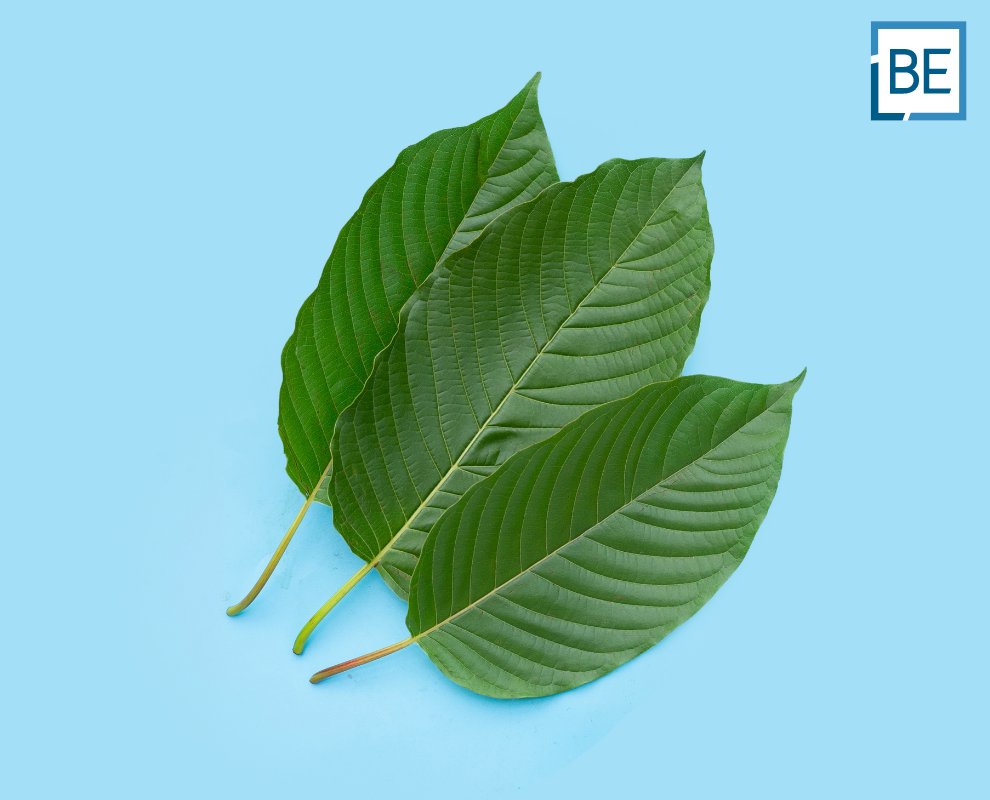en Thaïlande
LOI SUR LES STUPÉFIANTS EN THAÏLANDE
NOUVEAU CADRE JURIDIQUE POUR LE KRATOM EN THAÏLANDE
21/09/2022
La Thaïlande a amendé la loi sur les stupéfiants (n° 8) B.E. 2564 (2021). Dans le cadre de cette révision, le kratom (Mitragyna speciosa) a été retiré de la liste des substances interdites. Cet amendement a également décriminalisé les infractions liées au kratom, telles que sa consommation et sa possession.
La loi sur les plantes de kratom (Kratom Plant Act B.E. 2565 (2022)) est entrée en vigueur. Cette loi a été conçue pour encourager l'activité économique liée au kratom en réglementant le commerce, la vente, la consommation, l'étude et la publicité des feuilles de kratom (seules ou en tant qu'ingrédient dans les aliments) en Thaïlande.Le 27 août 2022, la loi sur le kratom B.E. 2565 est entrée en vigueur. Cette loi vise à encourager le développement économique autour du kratom en Thaïlande, en encadrant le commerce, la vente, la consommation, l’étude et la publicité des feuilles de kratom, qu’elles soient utilisées seules ou comme ingrédient dans des produits alimentaires.
Points clés
- Le kratom a été retiré de la liste des substances interdites en Thaïlande.
- La possession et la consommation de kratom sont désormais légales.
- La Thaïlande a introduit la loi sur les plantes de kratom (Kratom Plant Act) afin de réglementer l'activité économique liée au kratom.
- Il est interdit de vendre du kratom à toute personne âgée de moins de 18 ans et/ou enceinte ou allaitante.
Importation et exportation de feuilles de kratom
Selon la loi sur les plantes de kratom, l'importation et l'exportation de feuilles de kratom sont strictement réglementées et nécessitent l'obtention préalable d'une licence délivrée par le secrétaire général de l'Office de contrôle des stupéfiants (NCB - secrétaire général de la Narcotics Control Board).
Les personnes et entités suivantes sont éligibles pour obtenir une licence auprès du NCB :
- Les citoyens thaïlandais âgés de plus de vingt ans et résidant en Thaïlande ;
- Les entités juridiques enregistrées conformément à la législation thaïlandaise ;
- Les entreprises communautaires établies en vertu de la législation thaïlandaise ;
- Les agences gouvernementales.
Une fois accordée, la licence est valide pour une période de cinq ans. Il est important de souligner que même avec une licence, les importateurs et exportateurs doivent toujours informer le NCB de leurs activités d'importation ou d'exportation de feuilles de kratom.
Cependant, les règles sont différentes pour l'importation et l'exportation de feuilles de kratom à des fins personnelles, thérapeutiques ou médicales en dehors de la Thaïlande. Dans ces cas, les voyageurs doivent respecter les limites spécifiées dans les règlements ministériels en vigueur. Tout dépassement de ces limites est considéré comme une violation nécessitant l'obtention d'une licence appropriée.
En cas de non-respect de ces exigences, les contrevenants s'exposent à des sanctions pouvant aller jusqu'à un an d'emprisonnement, une amende maximale de 100 000 THB, ou les deux à la fois.
Vente de kratom
La loi sur les plantes de kratom facilite la vente de feuilles de kratom seules ou en tant qu'ingrédient dans des aliments, sous réserve de certaines conditions. Les activités suivantes sont considérées comme de la "vente" au sens de la loi :
- La vente,
- Dispenser,
- Distribuer,
- L'échange,
- Donner la substance à d'autres personnes.
La loi sur les plantes de kratom interdit la vente de feuilles de kratom (ou d'aliments contenant des feuilles de kratom comme ingrédient) à :
- Toute personne âgée de moins de 18 ans,
- Aux femmes enceintes ou allaitantes.
La loi sur les plantes de kratom permet également au ministère de la Justice et au ministère de la Santé publique d'interdire la vente de kratom à d'autres personnes à une date ultérieure.
Toute personne qui vend du kratom doit afficher sur son lieu de vente (y compris les points de vente électroniques) une annonce indiquant que les groupes énumérés ci-dessus n'ont pas le droit d'acheter du kratom. Toute personne surprise à vendre du kratom à ces groupes ou à ne pas afficher l'annonce ou l'avis requis est passible d'une amende pouvant aller jusqu'à 30 000 THB.
Ces mesures ont pour but de protéger les personnes contre les effets néfastes potentiels de la consommation ou de l'utilisation abusive du kratom.
Veuillez noter que la vente de kratom aux groupes restreints susmentionnés ne peut être autorisée qu'à des fins médicales ou éducatives. Les fins médicales ou éducatives sont définies comme suit :
- Traitement d'une maladie, thérapie ou soulagement d'une maladie sous la supervision d'un médecin, d'un dentiste, d'un praticien de la médecine traditionnelle thaïlandaise ou d'un professionnel de la médecine traditionnelle conformément à la loi relative à la profession médicale traditionnelle thaïlandaise ; ou
- Étude, analyse ou recherche menée par une agence gouvernementale chargée de mener des recherches médicales, pharmaceutiques ou scientifiques, ou de fournir des services médicaux, pharmaceutiques ou scientifiques au profit d'institutions médicales ou pharmaceutiques, de la Société de la Croix-Rouge thaïlandaise ou d'établissements d'enseignement.
Y a-t-il d'autres restrictions à la vente de kratom ?
En plus des restrictions mentionnées ci-dessus, il est également interdit de vendre du kratom dans les endroits suivants :
- Établissements d'enseignement,
- Dortoirs,
- Parcs,
- Zoos,
- Parcs d'attractions,
- Distributeurs automatiques,
- Ou d'autres lieux spécifiés dans les annonces des ministres de la Justice et de la Santé publique.
Si quelqu'un est pris en train de vendre du kratom dans ces endroits, il est passible d'une amende pouvant aller jusqu'à 50 000 THB et jusqu'au double (c'est-à-dire 100 000 THB) si la vente est faite à l'une des parties interdites mentionnées ci-dessus.
Bien que la consommation de Kratom soit désormais légale, il demeure interdit de consommer des feuilles de Kratom mélangées à des stupéfiants, des substances psychotropes, des substances dangereuses ou toute autre substance spécifiée par le ministère de la Justice. L'exception à cette règle est la consommation à des fins médicales ou éducatives spécifiques mentionnées ci-dessus. Toute violation de ces règles est passible d'une amende maximale de 50 000 THB.
Publicité
La loi sur les plantes de kratom contient également des dispositions relatives à la publicité pour le kratom en Thaïlande. Selon cette loi, la publicité ou la promotion de la consommation de feuilles de kratom mélangées à des stupéfiants, des substances psychotropes, des drogues et des substances dangereuses, ou d'autres substances désignées, est interdite. Cette réglementation couvre les publicités ou tout type de communication marketing, notamment :
- Les relations publiques,
- Les nouvelles,
- La promotion éditoriale,
- L'affichage dans les points de vente,
- Le marketing direct,
- Les ventes,
- La publicité en ligne ou sur ordinateur.
Toute forme de publicité ou de promotion enfreignant la loi est passible d'une peine d'emprisonnement pouvant aller jusqu'à deux ans, d'une amende maximale de 200 000 THB ou des deux.
De plus, il est interdit à toute personne ou toute forme de publicité ou de promotion visant à convaincre d'autres personnes (y compris "encourager, tromper, intimider, influencer de manière inappropriée ou forcer") à consommer des feuilles de kratom mélangées à des stupéfiants, des substances psychotropes, des substances dangereuses ou d'autres substances désignées. Toute violation de cette interdiction est passible d'une peine d'emprisonnement pouvant aller jusqu'à un an, d'une amende maximale de 100 000 THB ou des deux.
Les peines pour les deux activités mentionnées peuvent être doublées si la violation est commise à l'encontre de personnes âgées de moins de 18 ans, de femmes enceintes ou allaitantes, ou de toute autre personne désignée par le ministère de la Justice ou le ministère de la Santé publique. Ainsi, la peine maximale est de deux ans d'emprisonnement et une amende de 200 000 THB.
De quoi d'autre dois-je tenir compte ?
L'utilisation des feuilles de kratom dans certains produits peut être soumise à d'autres réglementations. Par exemple, l'utilisation de feuilles de kratom comme matières premières ou composants de produits à base de plantes, de médicaments et de cosmétiques peut être soumise à des lois spécifiques telles que la loi sur les produits à base de plantes, la loi sur les médicaments ou la loi sur les cosmétiques.
The relevant provisions under the specific legislation will still apply as well as those in the Kratom Plant Act.
Comment Belaws peut-il vous aider ?
Bien que le kratom et la vente de feuilles de kratom soient désormais légaux, il est recommandé de demander l'avis d'experts locaux avant de démarrer toute activité impliquant du kratom, en raison du nombre complexe de restrictions et d'exigences applicables.
Pour plus d'informations sur la façon dont nos experts peuvent vous aider à ouvrir une entreprise liée au kratom en Thaïlande, pourquoi ne pas discuter avec l'un d'eux dès maintenant ?
Veuillez noter que cet article est fourni à titre d'information seulement et ne constitue pas un avis juridique.
Nos consultations durent jusqu'à une heure et sont menées par des juristes experts qui parlent couramment l'anglais, le français et le thaï.
Les consultations peuvent être organisées sur WhatsApp ou sur le Logiciel de Vidéoconférence de votre convenance. Une consultation avec l’un de nos experts juridiques est sans aucun doute le meilleur moyen d’obtenir toutes les informations dont vous avez besoin et de répondre à toutes les questions que vous pourriez avoir sur votre nouvelle entreprise ou votre projet.
150 USD
Jusqu'à 1 heure
Paiement en ligne (Paypal ou carte bancaire)
Les consultations juridiques peuvent être menées en anglais, en français ou en thaï.
Les consultations juridiques sont assurées par des des avocats expérimentés dans les domaines concernés.
Questions fréquemment posées
Le cannabis est-il légal en Thaïlande ?
La production de produits contenant du cannabis est possible pour les entités étrangères. Toutefois, cette production est soumise à diverses exigences et obligations en matière de licence, en fonction du type de produit. Par exemple, les produits alimentaires nécessitent une licence de fabrication de produits alimentaires délivrée par la Food and Drug Administration (FDA).
Culture du cannabis en Thaïlande
Les entreprises thaïlandaises ne font face à aucune restriction pour la culture à grande échelle du cannabis en tant qu'activité commerciale. Les propriétaires d'entreprises doivent enregistrer la culture de cannabis auprès de la FDA via l'application "Plook Gan". Cependant, les entités étrangères peuvent être limitées dans leurs activités agricoles en vertu de la loi thaïlandaise sur les entreprises étrangères.
Puis-je acheter ou vendre du cannabis à fumer dont le taux de THC est supérieur à 0,2 % ?
La législation actuelle dispose que les extraits de cannabis dont le taux de THC est supérieur à 0,2 % sont illégaux. Toutefois, la définition de l'extrait reste très floue.
D'une manière générale, les extraits de cannabis sont des produits obtenus par extraction mécanique et raffinage de certaines parties de la plante de cannabis. Ces extraits sont ensuite utilisés pour créer des produits tels que le haschisch, les huiles et les teintures. Ces extraits ont tendance à contenir des niveaux de THC beaucoup plus élevés que ceux que l'on trouve naturellement dans la plante.
Étant donné que seuls les extraits ayant un taux de THC supérieur à 0,2 % sont considérés comme illégaux en Thaïlande, il semble que les feuilles et les fleurs naturelles ayant un taux de THC plus élevé ne soient pas illégales et puissent être achetées et vendues dans des magasins et des dispensaires en Thaïlande.
Il est important de noter qu'il est possible de fumer du cannabis à des fins récréatives en Thaïlande, mais uniquement dans une propriété privée. Fumer en public est considéré comme une nuisance publique. En outre, les restaurants et les cafés font partie des propriétés privées, mais ils doivent disposer d'un espace réservé aux fumeurs .
Créer une entreprise de cannabis en Thaïlande
Les entreprises étrangères et les entreprises majoritairement étrangères constituées en Thaïlande n'ont pas le droit de produire, de vendre, d'importer, d'exporter et de posséder du cannabis.
La distribution de cannabis n'est possible que pour les entreprises établies en vertu de la loi thaïlandaise et dont les ressortissants thaïlandais :
- possèdent au moins deux tiers du capital social et ;
- détiennent au moins deux tiers des postes d'administrateurs.
Toutefois, si vous remplissez les critères susmentionnés et que les ⅔ des actions et des postes du conseil d'administration sont détenus par des ressortissants thaïlandais, il est possible pour votre entreprise de produire et de vendre du cannabis et des produits associés (tels que des teintures contenant moins de 0,2 % de THC).
Comment obtenir une licence pour exploiter du cannabis en Thaïlande ?
Les candidats éligibles à une licence relative au cannabis en Thaïlande sont les citoyens thaïlandais, les sociétés enregistrées en vertu du droit thaïlandais (dont au moins deux tiers des gérants, partenaires ou actionnaires sont des ressortissants thaïlandais) et les entreprises communautaires régies par la loi sur les entreprises communautaires (Community Enterprise Act B.E. 2548 (2005)).
Pour une société, le représentant dont le nom apparaît sur la demande (et la licence, si elle est accordée) doit être un ressortissant thaïlandais âgé d'au moins 20 ans, il doit également avoir un domicile ou un bureau en Thaïlande et doit remplir les conditions de base en matière de capacité juridique (c'est-à-dire de compétence) et de solvabilité financière. Le représentant ne peut pas non plus être titulaire d'une licence suspendue ou révoquée en vertu de la législation thaïlandaise sur les stupéfiants ou les substances psychotropes. Enfin, il ne peut avoir fait l'objet d'une condamnation pénale pour violation de ces lois.
Articles connexes
Abonnez-vous aujourd'hui
Abonnez-vous aujourd'hui
À notre newsletter pour les dernières actualités juridiques
en Asie du Sud-Est, les mises à jour de Belaws et
les offres spéciales sur nos services.
To our newsletter today for all the latest legal news in South East Asia,
Belaws updates and special promotions on our services.







